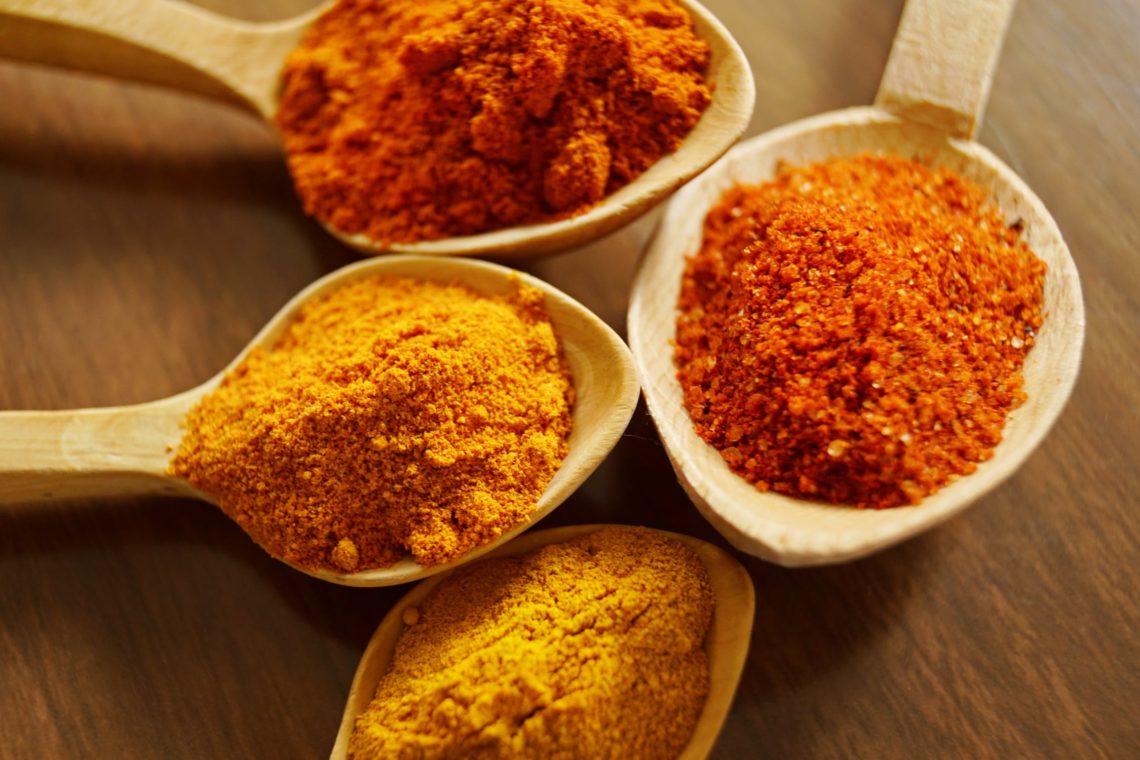
Turmeric: A potential cure for cancer?
 Cure. A very strong and controversial word within the medical and pharmaceutical communities. Turmeric, a plant that produces a spice for medicinal use and food preparation, has been benefiting cultures in Asia for thousands of years. Even recently, claims have been made about turmeric curing specific types of cancer. Many people probably believe this to be an absurd claim, but does evidence exist to support this case? I admit, how can a cheap spice available in many local markets compete with a very well funded pharmaceutical industry? The orange-yellowish powder is relatively new to the western world, arriving in Europe sometime in the mid-20th century. Today, turmeric is talked about in almost every media outlet from mainstream to smaller independents. Google analytics show a 300% growth of ‘turmeric’ searches within the last 5 years. So, what is it about turmeric that has everyone energized? Is there some truth behind these awe-inspiring claims?
Cure. A very strong and controversial word within the medical and pharmaceutical communities. Turmeric, a plant that produces a spice for medicinal use and food preparation, has been benefiting cultures in Asia for thousands of years. Even recently, claims have been made about turmeric curing specific types of cancer. Many people probably believe this to be an absurd claim, but does evidence exist to support this case? I admit, how can a cheap spice available in many local markets compete with a very well funded pharmaceutical industry? The orange-yellowish powder is relatively new to the western world, arriving in Europe sometime in the mid-20th century. Today, turmeric is talked about in almost every media outlet from mainstream to smaller independents. Google analytics show a 300% growth of ‘turmeric’ searches within the last 5 years. So, what is it about turmeric that has everyone energized? Is there some truth behind these awe-inspiring claims?
The two main uses for turmeric are for medicinal and culinary purposes. For the sake of this post, we’ll focus on the medicinal aspect. The active ingredient in turmeric, and in small amounts of ginger, that shows to be beneficial to our health is a molecule called curcumin. This powerful component of turmeric “exerts potent anti-inflammatory effects, and these anti-inflammatory effects may be protective against some form of cancer progression based on very preliminary research,” according to examine.com. TTAC adds that, “Based on a 2011 study conducted by the University of Texas MD Anderson Cancer Center, researchers found that the curcumin extract effectively differentiates between cancer cells and normal cells while activating cancer cell death (apoptosis).”
Aside from evidence curcumin is effective against certain types of cancer, it is also known to “help detoxify and rejuvenate the liver, reduce negative effects of iron overload , increase antioxidant capacity in the body, regenerate brain cells and improve cognitive function, reduce likelihood of and treats Alzheimer’s, is anti-inflammatory, reduce heart disease risk, reduce depression, and fight premature aging,” says naturalnews.com. Examine.com has reviewed 288 individual, scientific studies on curcimin and created an easy to read matrix based on the various study results. In this table you can see the magnitude of effect curcumin has on humans, the level of evidence to support said effect, and the level of consistency in the results.

Some personal testimonies are even more optimistic. In one reported case, a woman eliminated stage-3 myeloma by using a strict regiment of curcumin. Mrs. Dieneke Furguson was first diagnosed with the blood cancer in 2007 and it had spread quickly. UK Daily Mail reports that, “Doctors say her case is the first recorded instance in which a patient has recovered by using the spice after stopping conventional medical treatments. With her myeloma spreading rapidly after three rounds of chemotherapy and four stem cell transplants, the 67-year-old began taking 8g of curcumin a day – one of the main compounds in turmeric.”
The Mayo Clinic, a well know cancer research and medical practice center, is hesitant to conclude that turmeric has any of the aforementioned qualities…in humans. However, in a monotonous write-up on their website mayoclinic.org, they do admit that research is “ongoing” and that “laboratory and animal research suggests that curcumin may prevent cancer, slow the spread of cancer, make chemotherapy more effective and protect healthy cells from damage by radiation therapy.” In my opinion, this is a highly notable statement from one of the largest “not-for-profit” hospitals, that happened to rake in almost $11 billion in revenue in 2016 ($278 million in retail pharmacy sales alone), that financially benefit from expensive and ghastly cancer treatments. I did mention before that turmeric root powder was cheap, only costing about $25 for an organic, lead-free tested, 24 ounce bag. It would be quite difficult for large medical clinics to profit from something you could grow in your backyard if further studies continue to prove the promising results.
There are a few downsides to curcumin to take note. It has low bioavailability, meaning the body has challenges absorbing this powerful compound. According to nautralnews.com, a few ways to increase absorption and maximize your curcumin intake is to combine this spice with healthy fats (olive oil, avocado), a black pepper extract called piperine, or combine with quercetin. “Foods high in quercetin include red wine, red grapes, onions, green tea, apples, cranberries, blueberries, black plums, red leaf lettuce, raw kale, chicory greens, raw spinach, sweet peppers, snap beans and raw broccoli. The best whole food source of quercetin is capers.” Naturalnews continues, “Some test tube studies suggest that high concentration of curcumin can cause DNA damage as well as suppress the immune system.” As with many things in life, moderation is important. Curejoy.com reports that, “Dietary intake of turmeric on a regular basis is fine and seems to cause no side effects. However, some people have complained of stomach aches after prolonged ingestion of large amounts of turmeric. There have also been some reports of skin problems and irritation on consuming large amounts.” In others words, follow recommended serving sizes and stop using if you are noticing negative side effects. As with many non-regulated supplements, quality can vary. Ensure you are buying turmeric or curcumin from a legitimate and trusted source. If you plan to use turmeric for reasons beyond adding it to your daily diet as healthy, preventative measure, ensure you perform your own, adequate research.
In conclusion, there have been a vast amount of studies performed on turmeric that are showing promising results. The same studies have also shown that some of the benefits claimed may be more probable, while other claims may be more hype. However, just about every source I reviewed did agree on one common fact, turmeric is effective to some degree. The ongoing debate will be how effective is curcumin for each desired outcome. If you make a choice to introduce proper quantities of turmeric supplements into your diet, ensure you purchase from a trustworthy source. Also, take steps to maximize the benefits of the turmeric you ingest by following the bioavailablily tips noted above. Ask your friends or family members if they have any experience using turmeric and take an active part in researching and sharing your knowledge to others.
What are your thoughts? Please leave a comment below. Also, visit www.salusupdate.com for the latest health headlines from around the world.
Written by Robert Connolly
Sources:
Naturalnews.com | How turmeric kills cancer
Naturalnews.com | Stage-3 myeloma cancer completely eliminated
Postbulletin.com | Mayo Clinic finances
Thetruthaboutcancer.com (TTAC)

How to gain lean muscle mass
You May Also Like

Are Meal Deliveries Here to Stay?
October 13, 2017
How do you choose a protein powder?
March 2, 2019

3 Comments
Amanda Gamel
I am a huge believer of Turmeric and all of its’ powerful benefits! It has drastically helped me with my joint pain and any muscle inflammation. The information on Curcumin is very new and exciting information for me, can’t wait to learn more. It just goes to show how powerful this wonderful orange spice is and all the health benefits it holds.
Enrique Pasion
A very interesting read on the benefits of this wonder plant Turmeric and its included active molecule curcumin.
Good to know that, since Turmeric has many beneficial effects as proven by science, we need to be aware that this is not a be-all-end-all solution to everything. Great article!
Mike C.
Good read on Turmeric Curcumin especially about the possible prevention of cancer It made me research Turmeric on my own and found that it may be helpful with diabetes although it has yet to be tested on humans. Still a lot of studies to be made as to the benefits but it sounds very promising.